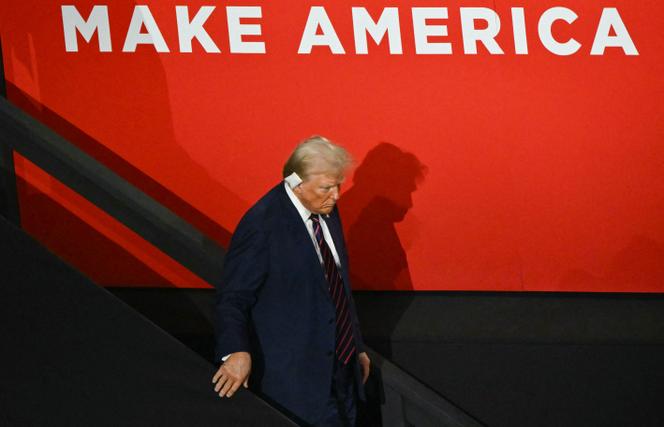


July 2019. Then president Donald Trump very publicly displayed his contempt for cryptocurrencies: "I am not a fan of Bitcoin and other Cryptocurrencies, which are not money, and whose value is highly volatile and based on thin air," he wrote on X. "Unregulated Crypto Assets can facilitate unlawful behavior, including drug trade and other illegal activity..." At the time, this position was shared by the rest of his government. Three days later, Treasury Secretary Steven Mnuchin, did in fact introduce a bill to tighten the regulation of crypto-assets.
But in five years, the tone has totally changed. Trump is expected this weekend at the Bitcoin Conference in Nashville, Tennessee, where he is scheduled to speak on the main stage. The 2024 Republican presidential candidate is now presenting himself as the champion of crypto-assets, in opposition to Joe Biden "whose hatred of Bitcoin only helps China, Russia and the radical left," according to Trump. This statement makes little sense: China has banned crypto-assets, which aren't exactly popular with the radical left either, who see them as a speculative tool and a symbol of the rawest form of capitalism.
The Republican candidate's U-turn on this topic is very recent. In February, he softened his tone to talk about Bitcoin, but still continued to point to the need for some form of regulation. And it wasn't until May and his speech at the national convention of the Libertarian Party – for whom cryptocurrencies are an important topic – that he came out as an unconditional supporter of crypto-assets. "I'm very positive and open minded to cryptocurrency companies, and all things related to this new and burgeoning industry," he wrote on Truth Social, the social network he founded, shortly before his speech. "Our country must be the leader in the field."
Pardon? The few items in his platform that Trump has shared on this subject are an astonishing mix. He repeated verbatim the key demands of crypto advocates and lobbies, such as abandoning any digital dollar project or defending the "right to self-hosted storage" (non-custodial). This technical term refers to keeping one's crypto-assets in personal accommodation, online or offline, and not on a large platform, such as Binance or Coinbase. In practice, this right also makes it easier to evade the tax and anti-money laundering checks increasingly launched by the US authorities against these platforms.
But the former president also added proposals for measures all his own, announcing, for example, that he wanted "all remaining Bitcoin to be MADE IN THE USA!!!! It will help us be ENERGY DOMINANT!!!" This is a fairly absurd idea: The Bitcoin "mining" system (in other words, their creation on the network) is decentralized by nature, and the value of "mining" them on a national territory depends on many factors, including energy prices or the price of the crypto-asset. On several occasions, the former president's statements have raised doubts about his real understanding of the sector. "Does Donald Trump actually understand how cryptocurrency works?" asked The New Republic magazine in mid-June.
You have 49.32% of this article left to read. The rest is for subscribers only.
